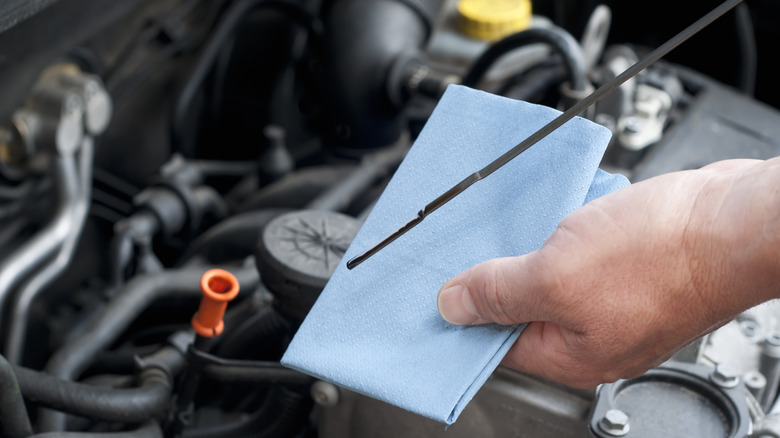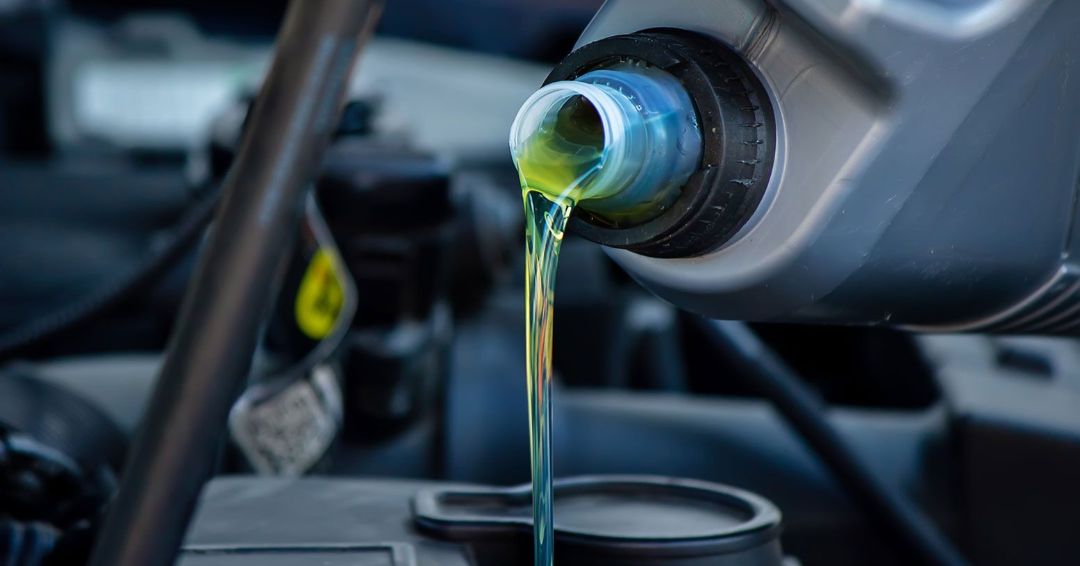Have you ever wondered how long your car’s engine can run without oil before it gets seriously damaged? It’s a crucial question because oil is like the lifeblood of your engine.
Without it, parts inside start to grind against each other, heat builds up fast, and before you know it, costly damage can occur. Knowing the exact time frame can save you from a breakdown or an expensive repair. Keep reading to find out how long your engine can safely run without oil, the warning signs to watch for, and what steps you should take if you suspect a problem.
This knowledge could protect your car and your wallet.

Credit: www.jalopnik.com
Role Of Oil In Engine Health
Engine oil plays a vital role in keeping a car engine healthy. It supports many engine functions and protects parts from damage. Without oil, the engine parts rub directly against each other. This causes heat and wear that can lead to engine failure. Understanding oil’s role helps explain why running an engine without oil is dangerous.
Lubrication And Friction Reduction
Engine oil creates a thin layer between moving parts. This layer stops metal parts from touching each other. Less friction means less wear and tear. Oil helps parts move smoothly and keeps the engine running quietly. Without oil, friction grows quickly. Parts can grind and wear out fast.
Cooling And Heat Management
Oil also carries heat away from engine parts. Engines get very hot during use. Oil absorbs some of this heat and moves it to cooler engine areas. This helps prevent overheating. Overheated parts can warp or break. Oil keeps the engine temperature stable and safe.
Preventing Corrosion And Wear
Engine oil protects metal parts from rust and corrosion. It forms a barrier that blocks moisture and air. This barrier stops harmful chemical reactions. Oil also carries away tiny dirt and metal particles. These particles can cause damage if not removed. Clean oil keeps engine parts strong and long-lasting.
Consequences Of Running Without Oil
Running a car engine without oil causes serious harm fast. Oil keeps the engine parts moving smoothly and cool. Without oil, parts rub together and heat up quickly. This leads to big problems inside the engine. Understanding these problems helps you protect your car.
Increased Friction And Overheating
Oil creates a thin layer between engine parts. This layer stops metal from scraping against metal. Without oil, friction rises sharply. Friction makes the engine very hot. Overheating can cause parts to warp or melt. The engine may stop working entirely.
Damage To Engine Components
Heat and friction wear down the engine parts fast. Bearings, pistons, and cylinders can crack or break. The engine block can get damaged too. Without oil, the metal grinds and chips away. Repair costs become very high or impossible.
Signs Of Oil Starvation
The engine may make knocking or ticking sounds. Smoke might come from the exhaust or engine. The engine warning light often turns on. You may notice a drop in engine power. These signs mean the engine is not getting oil.
Timeframe Before Engine Damage
Understanding the timeframe before engine damage occurs without oil is crucial for car owners. Oil keeps the engine parts moving smoothly and stops them from rubbing together. Without oil, the engine faces serious risks in a very short time. Knowing how quickly damage can start helps in taking fast action.
Seconds To Minutes: Immediate Effects
When the engine runs without oil, friction rises instantly. Metal parts begin to grind against each other. Heat builds up quickly. This can cause parts to warp or break. Within seconds, the engine loses its smooth operation. The car may start making strange noises or show warning lights.
Critical Damage Window
The first few minutes without oil are the most dangerous. Damage during this period is often severe and costly. Bearings can seize up, and pistons may score the cylinder walls. The engine can overheat and fail. Running the engine for more than 5 minutes without oil can cause permanent damage.
Factors Influencing Damage Speed
Several factors affect how fast damage happens. Engine type and design play a role. Older engines may suffer damage faster than newer ones. Engine speed also matters; higher RPMs increase wear. Temperature and driving conditions affect damage speed as well. Regular oil checks reduce the risk of running dry.

Credit: www.chapelhilltire.com
Real-life Examples And Case Studies
Understanding how long a car engine can run without oil is easier through real-life stories and studies. These examples show what happens inside the engine and the damage caused by lack of oil. They help explain why oil is critical for engine health.
Many drivers have shared their experiences of accidental oil loss. Mechanics offer expert opinions based on repeated cases. Long-term effects of running an engine without oil highlight the risks clearly.
Accidental Oil Loss Stories
Some drivers noticed oil leaks too late. One case involved a car running for 20 minutes without oil. The engine quickly overheated and seized. Another story tells of a driver who ignored the oil warning light. After driving 15 miles, the engine failed completely. These stories show damage can start within minutes.
Mechanic Insights
Mechanics say engines can fail in just a few minutes without oil. Oil keeps engine parts cool and lubricated. Without it, metal parts rub and wear fast. They warn that even a short run without oil causes costly damage. Regular oil checks prevent these problems.
Long-term Consequences
Engines that run without oil often need full rebuilds or replacements. Damaged parts include pistons, bearings, and camshafts. Oil loss leads to overheating and metal warping. Cars may lose power and use more fuel. Long-term damage lowers vehicle value and safety.
Preventing Oil-related Engine Damage
Preventing oil-related engine damage is key to keeping your car running well. Oil lubricates the engine parts and stops them from rubbing together. Without enough oil, the engine can overheat and break quickly. Taking simple steps can protect your engine and save you money on repairs.
Check oil regularly, pick the right oil, and follow good maintenance habits. These actions help your engine stay healthy and last longer.
Regular Oil Checks
Check your oil level often using the dipstick. Do this before long trips or every few hundred miles. Low oil means less protection for your engine. Top it up as soon as possible to avoid damage. Look for oil color and texture too. Dark or gritty oil needs changing. Clean oil keeps the engine parts moving smoothly.
Choosing The Right Oil
Use the oil type your car’s manual recommends. Different engines need different oil thickness or additives. Using wrong oil can cause poor lubrication and wear. Synthetic oils last longer and work better in extreme temperatures. Regular oils are fine for most cars but check what suits your vehicle best. The right oil helps the engine run cooler and cleaner.
Maintenance Tips
Change oil and oil filter as suggested in your car’s guide. Old oil loses its ability to protect. Keep the engine clean from dirt and dust. Replace worn parts that affect oil flow. Avoid driving with low oil warning lights on. Regular servicing helps spot problems early. Good care keeps your engine safe and reliable.
What To Do If You Suspect Low Oil
Noticing low oil in your car can be worrying. Acting fast can save your engine from damage. Knowing the right steps helps keep your vehicle safe. Follow clear actions to handle low oil levels properly.
Immediate Steps To Take
Check the oil level using the dipstick. Park your car on a flat surface. Remove the dipstick, wipe it clean, reinsert, and check again. Look for low or dark oil. Add the correct oil type if needed. Use small amounts and check levels often. Avoid overfilling the engine oil.
When To Stop Driving
Stop driving if the oil light turns on. Listen for unusual engine noises like knocking or ticking. Watch for smoke from the exhaust. Feel if the engine gets hot fast. Driving with low oil can cause severe damage. It’s safer to stop and prevent costly repairs.
Seeking Professional Help
Call a mechanic if you suspect low oil damage. Describe symptoms clearly and ask for advice. Schedule a service to check oil and engine health. Professionals can find leaks or other oil problems. They ensure your engine runs smoothly again.

Credit: www.familyhandyman.com
Frequently Asked Questions
How Long Can An Engine Run Without Oil Safely?
A car engine can run only a few seconds to minutes without oil. Lack of oil causes rapid overheating and metal friction, leading to severe damage. Immediate engine shutdown is crucial to avoid costly repairs or complete engine failure.
What Happens If A Car Runs Without Oil?
Running without oil causes metal parts to grind directly. This leads to overheating, increased wear, and eventual engine seizure. Damage occurs quickly, and the engine may fail permanently if oil is not restored promptly.
Can An Engine Recover After Running Without Oil?
Recovery depends on how long the engine ran oil-free. Short periods may allow repair with an oil change and inspection. Prolonged oil absence usually requires major repairs or engine replacement due to severe internal damage.
How To Prevent Engine Damage From Low Oil?
Regularly check oil levels and top up as needed. Follow the manufacturer’s oil change schedule strictly. Use recommended oil types and avoid prolonged driving after oil warning lights appear.
Conclusion
Running a car engine without oil causes serious damage fast. Oil keeps parts moving smoothly and stops overheating. Without oil, the engine can seize in minutes. Always check oil levels regularly to protect your engine. Small oil leaks or low oil can lead to big problems.
Acting quickly saves money and prevents breakdowns. Keep your engine healthy by using the right oil and changing it on time. Don’t risk costly repairs. Taking care of oil means your car runs longer and better. Simple steps make a big difference.

